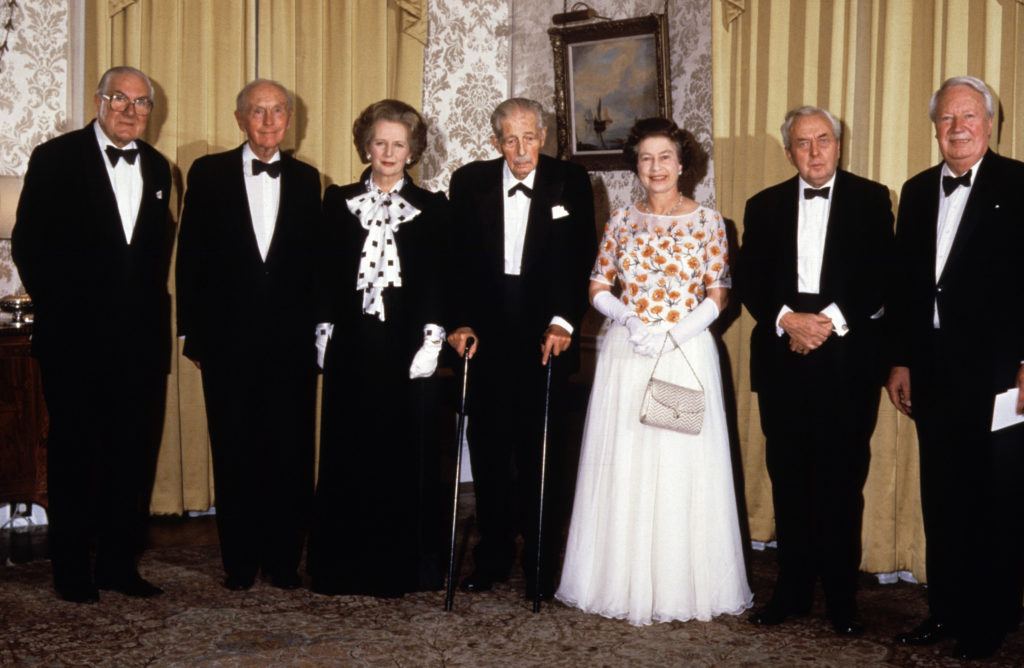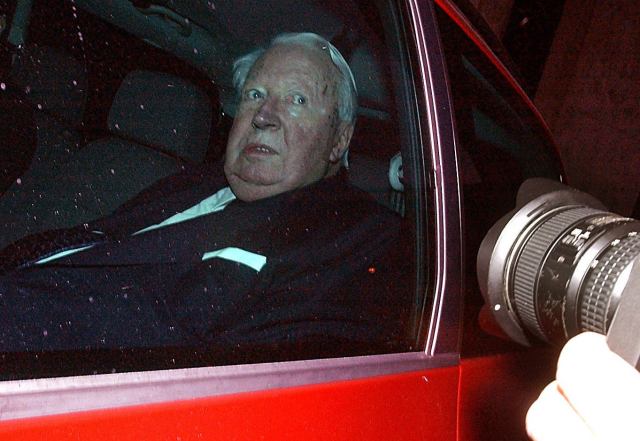John Stilwell for PA, in 2003

Even by the admission of his authorised biographer something went very wrong in Edward Heath’s life. Not just in his political career, where his replacement as Conservative Party leader by Margaret Thatcher in 1975 set off one of the greatest and deepest political huffs in party history (in a full field, it must be said). Also, sadly, in his personal life where the popular young army Captain developed into one of the sourest and least liked figures in Britain’s national life.
To put it another way, few people were ever heard to say “I do hope Ted Heath is there” when they headed out for an evening. Stories of his rudeness and difficult-ness still abound more than a decade after his death, in 2005.
I only ever saw him up close once – when he gave evidence over several days at the Bloody Sunday Inquiry. His appearance was so grudging, his responses to the lawyers who questioned him (often rudely) of such superior rudeness that the lawyers several times sought protection from the presiding judges.
What was the cause of this great souring? None of Heath’s biographers have been able to say. Perhaps it was all caused by professional upset. Perhaps it was all caused by an unfulfilled private life, consisting of a lonely, lifelong bachelor-hood. Perhaps it was something else. We shall most likely never know.
Yet the British police, in an apparent effort to prosecute every celebrity from the 1970s, have been doing their best to provide an answer.
Since that announcement in Salisbury Close we have seen investigations into similar accusations against Field Marshall Lord Bramall shown to be utterly false. Only last month it was reported that the Metropolitan Police have been forced to pay financial compensation to one of Britain’s most distinguished living soldiers. The reputation of Lord Bramall has been cleared, but only after a concerted campaign to prevent this veteran of the Normandy landings, now in his nineties, from dying with the allegations hanging over him. Sadly, his wife did die before the police, who never appeared in any hurry, corrected the error.
A similar situation occurred with the former MP Harvey Proctor, who was at one point publicly alleged to have engaged in acts of child sexual abuse with Edward Heath. One of Proctor’s accusers – a person only known as ‘Nick’ – also made allegations against Heath, who happened to be a political opponent of Proctor’s. That accuser could now himself be facing charges over his fantastical and erroneous claims. But those accused by ‘Nick’ have had to live with the consequences of his allegations. Having lost his job over the controversy, Proctor has been reduced to living in a garden shed. Last month he announced that he would sue the Metropolitan police.
Despite what Bramall and Proctor have endured, both are fortunate to be alive and able to fight the accusations against them. Specifically, they have been able to fight the police tactic of treating suspects as guilty until they can prove themselves innocent, a tactic exemplified lately by announcements from senior police that they believe allegations against Heath to be true.
Edward Heath is not in such a fortunate position. Without having left any family, and without having left many friends or others keen to leap to his defence, it appears that the police may get away with destroying his reputation without having to prove a thing.

The latest chapter in the police’s two year investigation of the late Prime Minister is their production of a report. Having leaked allegations to various papers for years – most noticeably the Mail on Sunday, which has spread lurid allegations across its front-pages – the police have now produced the full results of Operation Conifer: a total of seven individual disclosures stretching from the 1960s to the 1990s. That the former Prime Minister, under constant police escort until his death, would have been able to carry out acts of child abuse under the noses of the British police is just one question-raising feature of the case. Whether the promise of substantial pay-outs in compensation for anyone who claims to have suffered at the hands of Heath became a factor here is something we may never get to the bottom of.
The British media have splashed this development with the news that the police would have interviewed Heath under caution – were he still alive. Buried in their reporting is the too-late police reminder that:
‘It is clearly inappropriate to speculate what Heath’s response would have been in relation to the allegations put to him under caution in an interview. His account would have informed the next stages of the investigation strategy and investigators would have looked to check and test his account against the other available evidence.’
Indeed. But since Heath is dead that next stage is impossible. And so the police – who routinely complain about being so under-resourced that they cannot even monitor potential terrorists – have used their resourcing priorities to rampage across the reputation of a dead politician.
Who knows. Perhaps there is some cosmic justice. If not, then perhaps after his own death, a similar process of destruction can be carried out against the reputation of the current head of Wiltshire police? Or any of the numerous other people who have found this process agreeable and easy even while unjust. But meantime the manner in which a difficult man’s reputation has been destroyed should shock anybody for whom justice matters more than ease.
You do not need to have liked Edward Heath to hate the way in which this injustice has been meted out.










Join the discussion
Join like minded readers that support our journalism by becoming a paid subscriber
To join the discussion in the comments, become a paid subscriber.
Join like minded readers that support our journalism, read unlimited articles and enjoy other subscriber-only benefits.
Subscribe